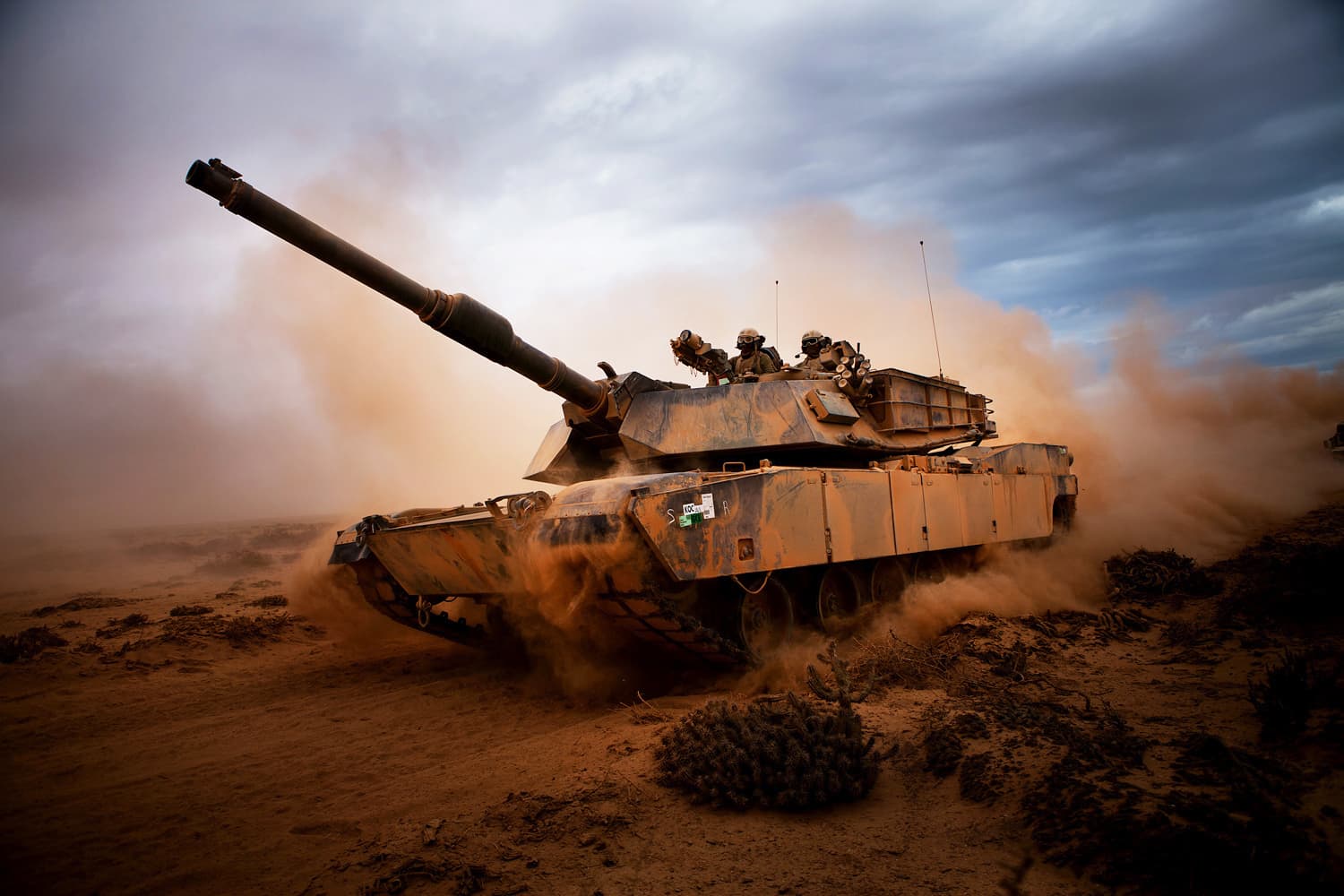Marines from 4th Tank Battalion, Twentynine Palms, Calif., roll down a dirt road on their M1A1 Abrams Main Battle Tank during a day of training.
U.S. Marine Corps photo
Whether or not a recession is just around the corner is a hotly debated topic among U.S. stock market investors, especially as the trade war with China drags on and some economic indicators flash warning signs.
Expecting the U.S. to narrowly avoid a recession, Goldman Sachs recommends one group of stocks with a good track record in this type of precarious environment: Aerospace and defense companies. As an added bonus, Goldman Sachs analyst David Kostin said aerospace and defense stocks come “with the lowest exposure to China.”
Kostin’s recommendation comes as a response to the decline in the ISM manufacturing index, which last week fell below 50 points for the first time in three years. A reading below 50 indicates a contraction. While some may raise concern about the drop, Kostin called the index “an inconsistent predictor of US recessions.” But Kostin noted that, when a recession didn’t occur following the ISM dropping below 50, aerospace and defense stocks outpaced the growth of the S&P 500 in the six months after.
So in other words, when economic conditions deteriorate but ultimately do not lead to a recession, the stock market typically does well in this period with defensive-type stocks outperforming. The S&P 500 has historically gained 22% in the six months following an ISM contraction that doesn’t lead to a recession. And Aerospace/defense stocks do even better, gaining an additional 2.5% during the same period, Goldman found.
“During the past 10 years, Aerospace & Defense has been least sensitive to US and global economic growth across Industrials subsectors,” Kostin said.
The firm pointed out that the three S&P 500 aerospace and defense companies “with the lowest reported sales to Asia Pacific” are TransDigm, Huntington Ingalls and Northrop Grumman.
Goldman is bullish on stocks for the next two years, expecting the S&P 500 will climb 4% to 3100 points by the end of this year and 14% to 3400 by the end of next year.
“Our economists expect that a US recession is unlikely during the next two years,” Kostin said.
– CNBC’s Michael Bloom contributed to this report.
